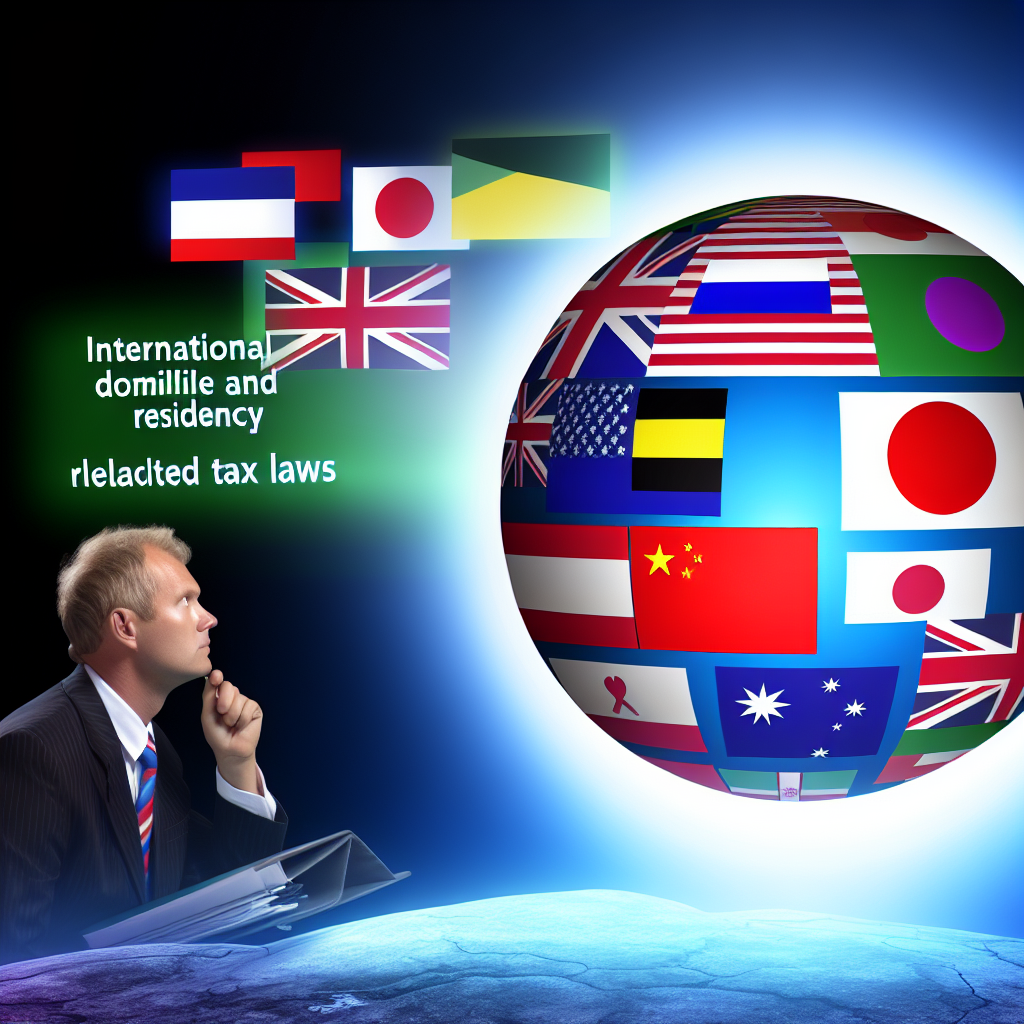
Explore how domicile and residency impact US gift and estate taxes for cross-border individuals and their families. If you are considering a cross-border gifting or estate plan, you must understand the concept of "domicile" under the US tax laws.
Understanding Domicile in the Context of US Gift and Estate Taxes
Domicile is crucial in US gift and estate taxes, particularly for cross-border individuals. Unlike residency, which is often determined by physical presence, domicile focuses more on intent and the permanence of an individual’s ties to a location. For tax purposes, domicile is considered the place where an individual has their true, fixed, and permanent home and to which they intend to return whenever they are absent.
Understanding one's domicile is not just a matter of knowledge; it's a powerful tool for determining the scope of the US gift and estate tax obligations. If an individual is domiciled in the US, they are subject to US gift and estate taxes on their worldwide assets. They can also take advantage of the $13.61 million (2024) lifetime exclusion of gifts and estate. Conversely, non-domiciled individuals are only taxed on assets situated within the US. This distinction can significantly impact tax planning and liabilities, giving you the power to make informed decisions. This idea becomes very useful when you start considering a move to another country from the US.
The Impact of Residency Status on Tax Obligations
Residency status is also vital in determining tax obligations for cross-border individuals and their families. Unlike domicile, residency can be established through physical presence and adherence to specific Internal Revenue Service (IRS) criteria. For example, the substantial presence test is commonly used to determine if an individual is considered a US resident for tax purposes.
Classifying as a resident or non-resident alien can lead to different tax treatments. Resident aliens are generally taxed on their worldwide income, similar to US citizens, while non-resident aliens are only taxed on income from US sources. This distinction is important for income tax planning and compliance, particularly for individuals and families who split their time between multiple countries.
Navigating Dual Residency: Challenges and Tax Implications
Dual residency can present unique challenges and tax implications for cross-border individuals. Dual residency occurs when an individual is considered a resident in more than one country under each country’s tax laws. This situation can lead to potential double taxation, where both countries tax the same income.
To address dual residency issues, many countries have entered into tax treaties that provide tiebreaker rules to determine the country of residency for tax purposes. Please look at the list of countries with tax treaties in place with the US. These treaties can help allocate taxing rights and provide relief from double taxation, offering a beacon of hope in complex tax situations. Understanding the specific provisions of these treaties and how they apply to your situation is essential for effective tax planning and compliance.
Strategic Planning for Estate and Gift Taxes for Cross-Border Families
Strategic planning is crucial for cross-border families to minimize estate and gift tax liabilities. One key strategy is establishing clear domicile and residency status to determine the applicable tax rules. Additionally, utilizing exemptions, exclusions, and credits available under US tax law can help reduce the overall tax burden.
For example, the unified credit allows significant assets to be transferred tax-free during life or death. At the same time, the annual gift tax exclusion ($18,000 in 2024) permits tax-free gifting up to a certain amount each year. Cross-border families should also consider the potential benefits of tax treaties and explore options such as trusts or other legal structures that may offer tax efficiencies.
How Changes in Domicile or Residency Status Affect Your Tax Planning
Changes in domicile or residency status can profoundly impact tax planning. Moving to a new country or altering your ties to a location can change your tax obligations and the strategies to manage them effectively. It is essential to evaluate the tax consequences of such changes before making any decisions.
For instance, relocating from a non-domiciled to a domiciled status in the US can expose your worldwide assets to US gift and estate taxes. At the same time, if you are a US domicile, you can take advantage of the lifetime gift and estate tax exclusion. Conversely, changing residency status can affect your income tax obligations and eligibility for various tax benefits. Proactive planning and consultation with tax professionals can help you navigate these changes and optimize your position, giving you a sense of control in uncertain tax situations.
If you'd like to discuss your plan for cross-border living, please fill out and submit the form to take advantage of our 30-minute complimentary consulting session. We will keep your information confidential.